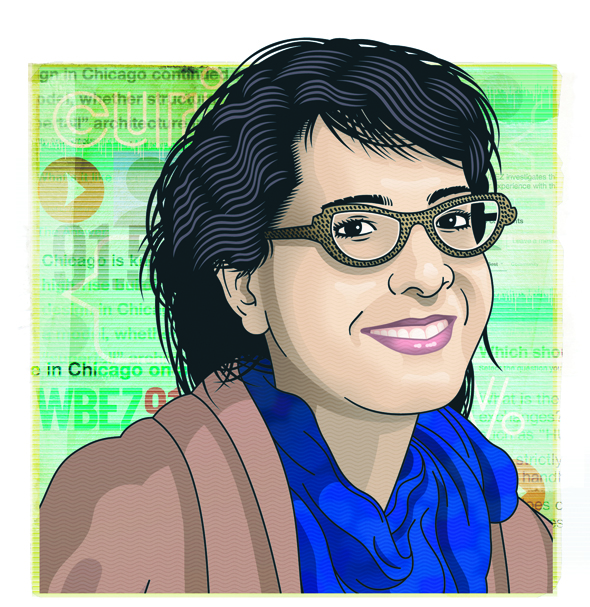
Each day, Curious City, a public-radio show that airs on Chicago’s WBEZ, hits its audience with a strangely intuitive query: “What should we investigate next?” This kind of interactive experience permeates every stage of storytelling in what Curious City founder Jennifer Brandel calls a “newsgathering experiment.” Readers suggest questions, or “curiosities,” then vote on the most interesting, which are assigned and reported–usually alongside the original question-asker–and translated into audio pieces, infographics, magazine features, and, in the case of an inquiry posed by a doughnut epicure, the occasional interactive map. In 2012, the Association of Independents in Radio hired Brandel to build the show as part of their Localore production. Now the Knight Foundation is helping Brandel develop her model of immersive crowdsourcing for other radio stations around the country. CJR’s Alexis Sobel Fitts talked to Brandel in September about building audience participation at its extreme.
I really liked those explainer-adventure stories and I wanted to create a kind of machine for them. I was working for the Baha’i faith–they’re an independent world religion–helping them translate their faith into layman’s terms for people. I’m not a member of the religion, so I had to learn about it. The Baha’i have a nonhierarchical approach to giving help. Their view is that you ask people what they want and then you give it to them. So we had to create a way for people to let their needs be known to us. Learning about their approach to community building was really powerful for me, and I really thought about how their approach could be applied to journalism.
All stories begin with a question about Chicago and its people. You can submit in many ways: We have social media; we have a website; we have a 1-800 number; we go to the streets. Every two weeks we have a public vote and the winners end up being reported. What’s great is that the questions are stuff none of us would ever have thought of. What’s at the bottom of the Chicago River? What’s it like to live on minimum wage in Chicago? The first story we ended up doing was what happens to all the animal crap in the Lincoln Park Zoo. It can run from a deeply investigative light to a human-interest story. No editor would say ‘Yeah, we could do that.’ Some of them are too risky, some of them would be like, ‘What’s the point?’ We’re so interested in the news industry saying ‘people are interested in these subjects,’ that this is a collective breeding ground for all of these ephemeral human questions. Our stories are so all-over the map, their only characteristic is that it’s uncharacteristic that someone would’ve investigated this. There’s a huge range in shape and tone.
Another word the Baha’i use is accompaniment: When someone wants something to be done you do it with them, instead of for them. Whenever a participant who asks this question gets to come along there’s a meta-narrative; we’re acknowledging that that story came from a member of the public. Even if they’re not totally baked into the story, they’re referenced. It becomes a new adventure for the reporter, kind of revisiting the beginner’s mind. As reporters we don’t get to interact with our audience–once in a while we hear their questions online. Our audience, they can’t say, ‘Hey alderman, I want to shadow you for a day,’ but because of us you get access to all these things.
I drew upon their idea of consultation: The Baha’i seek to have as many different viewpoints on a subject as possible so they can have the most information possible. We publish a reporter’s notebook, so the public can weigh in on our stories as we report them. We just did this really fun story about why Chicago has this wild parrot population on the South Side. We had a call-in number for people to report parrot sightings and we got all of these phone calls: ‘Oh my god they’re in my backyard you need to come now.’ It was delightful. Whatever we make, I think it should be delightful. Not in the sense of fun and light, but in the sense of fascinating. Getting new information, you should always have that feeling of delight.

